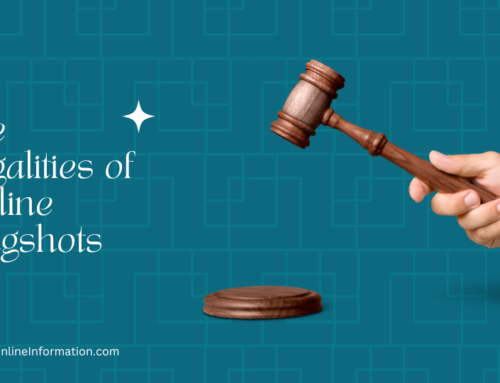Attention business owners: have you ever found yourself caught in the jaws of Yelp’s extortion scandal? Brace yourselves, because this blog post holds the key to unlocking the secrets behind this notorious controversy. Get ready to delve into a gripping exposé on Yelp’s dark side and discover what every business owner needs to know in order to navigate these treacherous waters. From shocking revelations to essential tips for survival, we’ve got your back in this battle against unfair practices that could make or break your success. So fasten your seatbelts and join us on this thrilling journey as we unveil the truth about Yelp extortion — because knowledge is power!
Introduction to the Yelp Extortion Scandal
In 2014, Yelp was embroiled in an extortion scandal that left many business owners feeling betrayed and taken advantage of. The scandal came to light after several businesses reported receiving threatening phone calls from someone claiming to be a Yelp sales representative.
The Yelp extortion scandal refers to a class-action lawsuit that was filed against the popular review website in 2014. The suit alleged that Yelp was engaged in “extortion” by offering to remove negative reviews from businesses’ profiles in exchange for money.
Yelp has denied any wrongdoing, and the case is still pending. However, the scandal has raised important questions about the ethics of online review websites and their impact on small businesses.
As a business owner, it’s important to be aware of the potential risks associated with online review sites. Here are four things you need to know about the Yelp extortion scandal:
1. The allegations against Yelp are serious.
The class-action lawsuit alleges that Yelp has been systematically extorting small businesses for years. According to the suit, Yelp sales representatives contact businesses that have received negative reviews and offer to remove the reviews in exchange for money.
2. Yelp denies any wrongdoing.
Yelp has categorically denied any wrongdoing, saying that they do not offer to remove negative reviews in exchange for money. They have also pointed out that the plaintiffs in the lawsuit have not provided any evidence to support their claims.
3. The case is still pending.
The class-action lawsuit against Yelp is still pending, and it’s unclear how it will ultimately be resolved. However, the mere fact that such a suit has been filed raises questions about the ethical implications of online review websites.
How Does Yelp Extort Business Owners?
Yelp has been embroiled in an extortion scandal, with business owners accusing the company of manipulating reviews in order to extort money from them.
Yelp allows users to review businesses, and these reviews can be positive or negative. However, some business owners have accused Yelp of manipulating reviews in order to extort money from them.
Some business owners have reported that they have received calls from Yelp salespeople after they received a negative review, and that the salespeople offered to remove the negative review if the business owner paid for advertising on Yelp. Other business owners have reported that their positive reviews disappeared after they refused to pay for advertising.
Yelp has denied these accusations, but the allegations have led to a class action lawsuit against the company.
Business owners should be aware of this scandal and should carefully consider whether or not to do business with Yelp.
Can Yelp Legally Extort Business Owners?
Yelp has been accused of extorting businesses by offering to remove negative reviews in exchange for advertising. This has led to a class action lawsuit against the company.
Yelp denies these accusations, but there is evidence that they have engaged in this type of behavior. Business owners have reported being contacted by Yelp sales representatives and offered a “deal” to have negative reviews removed. In some cases, Yelp has also threatened to remove positive reviews if the business does not agree to advertise.
This behavior is unethical and it puts businesses at a disadvantage. If you are a business owner, you should be aware of this issue and take steps to protect your business.
There are a few things you can do if you think Yelp is trying to extort you:
- Do not engage with sales representatives from Yelp. If they contact you, just say no and hang up.
- Do not pay for advertising on Yelp. This will only encourage them to continue their unethical behavior.
- Stand up for yourself and other businesses by writing honest reviews on Yelp and other platforms. Help expose Yelp’s practices so that others can be warned about their tactics.
What Should Business Owners Do if They Feel They Are Being Wrongfully Targeted?
If you are a business owner and you feel that you are being wrongfully targeted by Yelp, there are a few things that you can do. First, try to resolve the issue directly with Yelp. If you are unable to do so, you can file a complaint with the Better Business Bureau or your local Chamber of Commerce. You can also contact an attorney who specializes in defamation law.
Strategies for Dealing With False Reviews on Yelp
It’s no secret that Yelp can be a powerful tool for businesses. But what happens when false reviews start appearing on your business’s Yelp page?
There are a few things you can do to deal with false reviews on Yelp:
- Respond to the review. This is the best way to set the record straight and clear up any misinformation. Be professional and courteous in your response.
- Flag the review. If you believe the review is fake or misleading, you can flag it for Yelp’s review team to take a look at.
- Reach out to the reviewer directly. If you have contact information for the reviewer, you can try reaching out to them directly to see if there’s anything you can do to resolve the issue.
- Talk to Yelp. In some cases, it may be helpful to reach out to Yelp directly and let them know about the situation. They may be able to help resolve the issue or take action against the reviewer if necessary.
- Take legal action. In extreme cases, you may need to take legal action against the reviewer if they’ve made defamatory statements about your business
Conclusion
The Yelp extortion scandal is an unfortunate reminder of the need for businesses to be vigilant about their dealings with external companies. Business owners should always take the time to read reviews, contact previous customers and investigate any potential red flags before entering into a business relationship. Taking these steps can help protect your business from unfair treatment and ensure that you get the best value for your money. Additionally, by understanding how scams like this work, we can all do our part in helping to expose them and make sure they don’t victimize unsuspecting business owners ever again.




